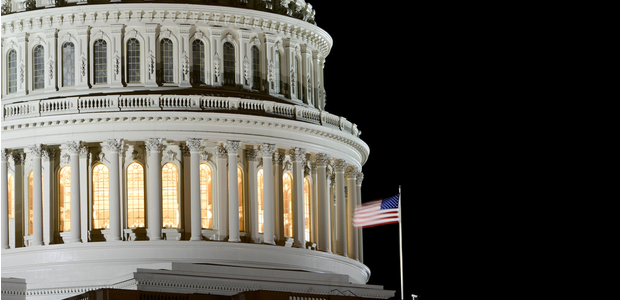Think tank alums look to build tech expertise for Congress
A new private-sector resource hub is hoping to reverse Congress' declining institutional knowledge of technology issues.

Recent high-profile hearings involving election security and social media have exposed the wider public to something long known inside policy circles -- Congress as an institution struggles to understand technology.
"The inability to tackle a lot of these technical issues is starting to be a big deal and starting to cause embarrassment," said Zach Graves, who has worked for the R Street and Cato Institutes. "In many hearings, there are members who have no idea what they're talking about."
To help bring legislators up to speed in the tech space, Graves, who works as head of policy at the Lincoln Network, and Daniel Schuman, policy director at Demand Progress, have launched a new initiative called Future Congress.
Partnering with a range of technical, left- and right-leaning think tanks, Future Congress aims to provide a resource and information hub for the legislative branch, aimed specifically at supporting committees, staffs and incoming legislators.
"Our view is that we need a big, multifaceted approach to reverse the institutional decline" Congress has been experiencing, said Graves, pointing to the reduced number of policy staffers and the exodus of institutional knowledge due, at least in part, to lower salaries on Capitol Hill compared to those on K Street.
"This institutional weakness," Graves said, "has made [Congress] incapable of tacking big policy issues," which address everything from cybersecurity threats, to elections, to digital privacy, to nationwide challenges for labor displaced by automation and getting out in front of emerging tech like artificial intelligence.
Graves said one of his biggest personal priorities in restoring Congress's legislative capability would be re-establishing the shuttered Office of Technology Assessment -- or a body with a similar function. Another would be providing lawmakers and committees in both parties with education and ideological justifications for the need to invest more in tech and legislative expertise, rather than having to outsource legislation writing to lobbyists and think tanks.
NEXT STORY: FAA cracks down on rogue drones





